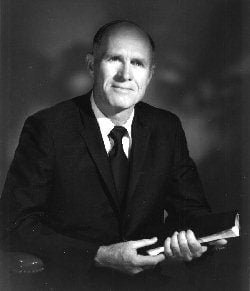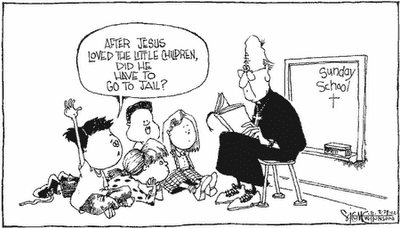
A guest post by MJ Lisbeth
In my youth, I didn’t make many good decisions. Two of the good ones, though, came during my service as an Army Reservist.
The first came after my first session on the shooting range. I managed, somehow, not to miss the target. The instructor called me aside. I expected a reprimand, or worse.
“Have you ever handled a weapon before?”
“No, sir!”
He said he was going to recommend me to someone whose name I didn’t catch. Turns out, he was involved with sniper training. Would I be interested?
In the Army, and in most of the world’s armed forces, snipers are given, if not privileges, then at least a wider berth than other soldiers. Seen, rightly, as eccentrics–most are more introverted,and many have more artistic impulses than others in uniform—snipers are treated with a combination of fear and awe.
I declined, with a combination of my limited social skills and the little military etiquette I’d learned up to that point. I feared that the man who made the offer and my unit commander could make me miserable, but I feared more the fate of too many snipers: they die at the hands of other snipers. Much to my relief, my refusal didn’t seem to have any effect on my experience in uniform.
The second good decision came regarding something not as potentially life-altering or -ending. When I mentioned that I was interested in returning to school, my commander said he could recommend me for the chaplaincy. Years later, I realized he was basing his offer on, ironically, the same qualities (aside from my ability to shoot) that might’ve made me a good sniper: my introversion and intuition, or at least the fact that I was (and am) quieter and less exuberant than the other young recruits.
Although the Army listed my religious preference as “Roman Catholic,” mainly because it usually classified its members according to the religion in which they were born or raised, I hadn’t attended mass in a long time. I had become an Evangelical Christian but the flame of my faith—and of any belief in a supreme being—was flickering by that time. For that reason, I passed on the suggestion that I become a military chaplain.
Turns out, although I ultimately made the right choice for me—in part because I had no plans to remain in the military any longer than I needed in order to attain my goals—I’d based my decision on a flawed perception of what chaplains (and, by extension, other clergy members) do, and what makes it effective to the extent that it is.
What got me thinking about all of that was an interview NPR Weekend Edition Saturday host Scott Simon conducted with David Sparks, who is retiring after more than 40 years of “comforting” service members at Dover Air Force Base as the flag-draped caskets of their loved ones arrive. Interestingly, this retirement will be his second: after retiring as a uniformed chaplain, he returned to that role as a civilian who is a Church of the Nazarene pastor.
He talked about what a “privilege” it was to try to “support” families on what is “ostensibly the worst day of their lives.” He got that last part right: what can be worse than losing a spouse, a parent, a sibling, or a friend in a random and possibly senseless incident? But men and women who’ve been in combat—and their loved ones—rarely use words like “privilege” to describe their experience. Some—officers, usually—might talk about “duty” or “honor.” One thing Hemingway, whatever else you might want to say about him, understood very well is that it’s all but impossible to convey the experience of battle to people who haven’t experienced it because when you describe it, you’re speaking an essentially different language from what most people are accustomed to hearing. I will be the first to admit that, as someone who never experienced battle, I will never fully understand someone who has, or who has borne the loss of someone who has.
Reverend Sparks, at least, seems honest enough to make such an admission. That is why, during his interview, he confessed, “there isn’t anything you can say” that “can be of much help.” Truth is, all he or any man or woman of the cloth can offer is to affirm whatever belief or hope the grieving family member may have. He told the story of a woman who wanted to know whether her husband was in heaven. “What does your faith tell you?” he responded. “She answered her own question,” he recalled.
That story reminded me of why I chose not to become a chaplain: the job is premised on a notion that, I suspect, most people have when they join or are conscripted into the military: God is on our side. While I still had some semblance of belief in something like the God of the Abrahamic religions, I didn’t feel certain that God would always look with favor on everything we, as a fighting unit or nation, did, let alone that what we did would be moral or just. Much later, I would come to see that nations and empires, with few exceptions (most notably Communist countries like the Soviet Union and China, which officially espoused atheism) have always gone to war with the belief that “God (whatever they call him/her/it) is on our side.”
Of course, today, as an atheist, I do not believe any such thing. It seems to me, though, that it’s all but impossible to send young people off to take the risk of getting maimed or killed—or to convince their parents that it’s a “good” and “honorable” thing to do, let alone a “privilege,” without a belief that they’re doing it for, if not a being, then at least a force or institution, greater than themselves or anything they have imagined—and, the more vague their conception of it, the better Or, at least, whatever they believe in will understand when they do the things they’ve been trained to do, or fall victim to someone who’s trained in the “arts of war.”
(I am not a fan of Star Wars. I will concede, however, that its writers understand what I’ve described in my previous paragraph.)
One of John Milton’s purposes in writing Paradise Lost was to “justify the ways of God to Man.” William Blake and others said, in essence, that he failed, if spectacularly and beautifully, in that endeavor. What people—like the woman Reverend Sparks mentioned—want from pastors and chaplains is, I believe, the inverse: to justify the ways of people, and those who conscript them into such endeavors, to God or Yahweh or Allah or whatever they call whatever they believe in. How else can they convince themselves that their sacrifices, or those of their loved ones, had purpose and meaning?
What I found most interesting, though, about Scott Simon’s interview with Reverend Sparks is the latter’s tacit admission that what he accomplishes is not achieved through faith or his knowledge of his scripture or theology. Rather, it is through some basic psychology. For example, he says that he got the woman in his story “to answer her own question.” And, he says, sometimes all he can do is let people tell their stories and those of the loved ones they’ve lost.
It’s no wonder, then, that today, in all but the most extreme or fundamentalist churches, aspiring clergy members are encouraged to undergo training in psychology, social work, and related fields. Members of church hierarchies might believe that such training makes for a more effective ministry. They are right, if one defines an “effective ministry” as one that serves people in their time of need. While I don’t know whether Reverend Sparks has an MSW or a degree in clinical psychology, his story illustrates that the techniques one learns from training in such areas—or from life experience—do more to meet the needs of someone who is grieving or otherwise in distress than knowledge of the Bible or theology. (Editor’s note: Chaplain David Sparks holds a Master of Divinity from Nazarene Theological Seminary.)
Oh, and that’s another reason why I didn’t become a chaplain: I realized, especially after volunteering on a suicide hotline, that if I really wanted to comfort or help someone, there could be absolutely no other agenda—especially a geopolitical or religious one—involved. You might say that an organization that trains people to kill helped me to make at least one good decision in my youth.
Bruce Gerencser, 68, lives in rural Northwest Ohio with his wife of 47 years. He and his wife have six grown children and sixteen grandchildren. Bruce pastored Evangelical churches for twenty-five years in Ohio, Texas, and Michigan. Bruce left the ministry in 2005, and in 2008 he left Christianity. Bruce is now a humanist and an atheist.
Your comments are welcome and appreciated. All first-time comments are moderated. Please read the commenting rules before commenting.
You can email Bruce via the Contact Form.







